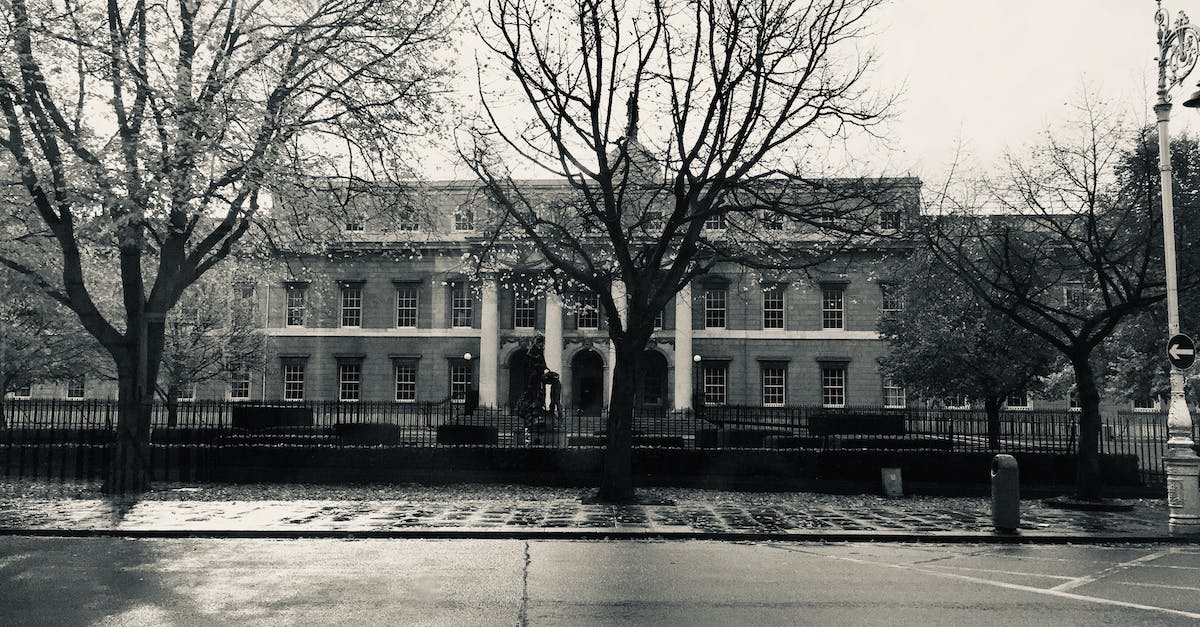There were thirteen HBCU law schools in the United States, but only six remain. All of America's HBCU Law Schools are of excellent quality. The six remaining HBCU law schools are Howard University School of Law, Meharry Medical College School of Medicine and Dentistry, North Carolina Central University School of Law, Southern University Law Center, Texas Southern University Thurgood Marshall School of Law, and Florida A&M University College of Law.
The Six HBCU Law Schools in the United States
There were thirteen HBCU law schools in the United States at one point. Now, there are only six remaining. The schools prepare future lawyers to make history.
The first HBCU law school was established in 1868 at Howard University. Lincoln University followed suit in 1869, then Wilberforce University in 1877. These three schools laid the foundation for what would become a vital part of the African American community and legal landscape.
Despite their importance, HBCU law schools have been on the decline in recent years. In 1981, there were nine such institutions; by 1996, that number had fallen to seven. And as of 2019, there are only six remaining HBCU law schools in the United States.
What has caused this decline? There are a number of factors, including financial difficulties and changing demographics. But whatever the reasons, it's clear that HBCU law schools play a vital role in American society and their continued existence is essential.
These schools provide an important pipeline for black lawyers into the profession. They also play an important role in ensuring that diversity is represented within the legal system. As one professor put it, "[HBCU law schools are a critical mass for producing African American lawyers who can go out and be change agents within the profession]."
In other words, HBCU law schools are crucial for preparing future lawyers who will make history. Let's hope that these vital institutions continue to thrive for many years to come.
Florida A&M University College of Law
Florida A&M University College of Law is located in Orlando, FL. The school's founding mission was to provide an exceptional education to underprivileged populations around the globe. FAMU Law offers many benefits to its students, including access to a law library with key cases and decisions. The school has a long list of successful alumni, including Arthenia Joyner who earned her degree in 1968 and later served in the Florida Senate and House of Representatives. FAMU Law has received grants totalling $5 million dollars over recent years, helping them expand their diversity initiatives into STEM fields. One of their graduates was even awarded an Equal Justice Works Fellowship.
The school's commitment to diversity extends beyond its student body. One of the core missions of Florida A&M University College of Law is to provide opportunities for all individuals, regardless of their background or circumstances. This includes students who come from underserved or underrepresented communities. In addition to offering a quality legal education, the school also strives to create an environment that is supportive and inclusive.
FAMU Law offers a variety of programs and services that are designed to promote success for all students. The school provides academic advising, career counseling, and professional development resources. It also offers a number of scholarships and financial aid options. In addition, FAMU Law has an active Student Bar Association that organizes social and networking events throughout the year.
If you're looking for an HBCU law school that is committed to diversity and inclusion, Florida A&M University College of Law is a great option to consider.
UDC Law
The University of the District of Columbia David A. Clarke School of Law is a public interest law school. The school emphasizes a hands-on experience, and all students are required to perform 40 or more hours of community service in their first year. Notable alumni include former U.S. Attorney General George J. Terwilliger III and Illinois Supreme Court Chief Justice Thomas L. Kilbride.
UDC Law is one of only four HBCU law schools in the country. HBCU stands for Historically Black Colleges and Universities. These institutions were created with the goal of providing higher education opportunities to African Americans who had been excluded from mainstream colleges and universities.
Today, HBCU law schools continue to play an important role in promoting diversity in the legal profession. According to a recent study, HBCU law schools graduate a higher percentage of black lawyers than any other type of institution. This is significant because black lawyers are still vastly underrepresented in the profession as a whole.
UDLC Law's commitment to public interest law also makes it stand out from other schools. Public interest law encompasses a wide range of legal issues that affect the public good, such as civil rights, environmental protection, and consumer rights. Students at UDC Law have the opportunity to gain practical experience working on these types of cases through clinics and externships.
If you're interested in attending a law school that is dedicated to both diversity and public service, then UDC Law is definitely worth considering!
Howard University School of Law
The School of Law at Howard University was established in 1869. As the first Historically Black College or University, Howard has always been a pioneer in education. Thurgood Marshall, the first Black Supreme Court justice, graduated from Howard University. The school has three public welfare institutes and seven legal clinics.
Howard Law publishes several well-known law journals, such as the Howard Law Journal, the Howard Human & Civil Rights Law Review, The Barrister, and The Jurist. These publications provide students with valuable real-world experience and help to prepare them for their future careers.
The faculty at Howard University School of Law are committed to teaching their students not only the law, but also how to use the law to fight for social justice. They instill in their students a sense of responsibility to use their skills and knowledge to make a difference in the world.
Graduates of Howard University School of Law have gone on to become leaders in all fields of endeavor, including politics, business, academia, and government. They are proof that an HBCU education can equip one with the tools to succeed in any field.
NCCU Law
North Carolina Central University's Law School has come a long way since it opened its doors in 1939. The U.S. recognized it as one of today's best law school by funding it with $2 million. Commerce Department's National Telecommunications and Information Administration.
This funding has allowed NCCU Law to establish several clinics and institutes where students can gain hands-on training, thus advancing the school's mission of helping the community. These initiatives would not be possible without the support of the Commerce Department, and I am proud to see NCCU Law continuing to thrive and make a difference.
As one of only four Historically Black Colleges and Universities with a law school, NCCU Law plays an important role in providing access to legal education for all. I am confident that the school will continue to produce top-notch lawyers who will go on to make a positive impact in the world.
Southern University Law Center
Southern University Law Center was founded in 1947 and is located in Baton Rouge, Louisiana. Louisiana State University Law Center is one of two Louisiana law schools that focus on both French- and Spanish-origin substantive and procedutral laws. Students can choose to study in a full-time, part-time, or evening program. The school's study-abroad program sends students to London where they can take courses on international subjects.
HBCU law schools play an important role in providing access to legal education for African American students. Southern University Law Center has been at the forefront of this effort, ensuring that generations of black lawyers have been able to pursue their dreams of becoming attorneys. The school has produced many notable alumni, including Federal Judge John deGravelles and Louisiana Supreme Court Justice Bernette Johnson.
Despite its long history and tradition of excellence, Southern University Law Center faces some challenges in the current educational landscape. Like many HBCUs, the school has struggled with financial issues in recent years. Additionally, the Baton Rouge area has been hit hard by crime and violence, making it a less than ideal environment for students who are trying to focus on their studies.
Despite these challenges, Southern University Law Center remains committed to providing a quality legal education to all who seek it out. The school continues to produce talented lawyers who go on to make a difference in their communities. If you are interested in attending an HBCU law school with a rich history and tradition of success, Southern University Law Center is definitely worth considering.
Texas Southern University Thurgood Marshall School of Law
The Thurgood Marshall School of Law at Texas Southern University is one of the nation's leading Historically Black Colleges and Universities. The school was named after Thurgood Marshall, a key figure in African American legal history. The school has three legal clinics: the Earl Carl Institute for Legal and Social Justice, Inc., the Center for Legal Pedagogy, and the Institute for International and Immigration Law. These clinics provide students with hands-on experience in the legal field, allowing them to gain the skills and knowledge they need to be successful attorneys.
Texas Southern University is committed to providing a quality legal education to its students. The school offers a variety of programs that prepare students for careers in law. In addition to its academic programs, the school also offers extracurricular activities and organizations that allow students to get involved in the community and learn more about the law. The school's location in Houston, Texas also gives students access to a wealth of internship and job opportunities in the city's many law firms.
If you are interested in pursuing a career in law, then Texas Southern University is a great place to start your journey. The school provides an excellent education and prepares its students for success in their chosen field.
Conclusion
HBCU law schools play an essential role in developing a pipeline of black lawyers and ensuring diversity is represented in the legal system. The role of these schools is to prepare future lawyers to enter into the legal profession and instigate change by fighting for social justice. It is essential for HBCU law schools to continue thriving, even though there has been a decline in recent years.


